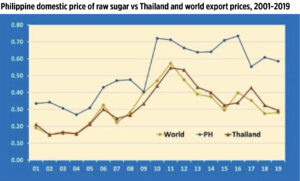Innovation, a key driver of the trust industry

By Bjorn Biel M. Beltran, Special Features and Content Assistant Editor, BusinessWorld
Trust is the cornerstone of banking and financial services. Even in ancient Mesopotamia, when trade and barter was the primary economic model for civilization, temples acted as the repositories for agricultural goods and precious metals, because people trusted their religious leaders to protect their valuables and facilitate equitable lending transactions in the form of grain loans or commodity exchanges.
In the Middle Ages, as merchants started to need safer means of wealth storage and long-distance commerce, the earliest establishments most resembling the banks of today rose to prominence, such as the famous Medici Bank in Italy and the Fugger Bank in Germany, alongside innovations like sophisticated bookkeeping and paper currencies.
Now in the digital age, innovation once again fuels the engine of progress in the financial industry, nurturing greater trust between financial institutions, their clients, and broader market participants, by enhancing efficiency, transparency, security, and accessibility.
Dr. Robert B. Ramos, CFA, CAIA, president and chief executive officer (CEO) of RCBC Trust Corp., said that their clients’ habits have been shifting towards digital since the digital transformation took off in the industry a few years ago.
“The use of digital platforms and other electronic means for account opening, order-taking, report generation and investment portfolio monitoring is becoming the norm especially for retail clients,” he said in an interview with BusinessWorld.
Naturally, this change in consumer demand led to a reevaluation of their strategy. Dr. Ramos explained that the shift to digitalization has not only changed the way they sell their products and process their transactions, but it fundamentally changed how they interact with their clients. “Providing our clients with a convenient and effortless way to access investment products has always been a top priority for us,” he said.
“A number of our client meetings are now held virtually. This enables us to ‘e-meet’ and to discuss our services with several clients in a day. Further, more clients prefer to do their investments online now rather than going to the branch or submitting hardcopy documents,” he said.
Ms. Maria Theresa Marcial, president and CEO of BPI Wealth, shared similar comments, saying that major players in the industry have been upgrading their digital platforms to become more intuitive, aesthetic, and make financial content more accessible to the general public.
“More than refreshing the look, the aim is to make content more understandable for those who may not have extensive financial expertise,” she said, adding that technologies like artificial intelligence (AI) have been a great boon towards streamlining and enhancing their client services.
“We innovate because we always want to elevate the customer experience to the next level. Through our recent innovations, we have improved access to our products and made the process of onboarding virtually ‘painless.’ Our turnaround times for transactions have also been significantly shortened. There is an increase in transparency since portfolios can be monitored real-time and reports can be generated online. All these enhanced trust and confidence among our clients,” Dr. Ramos added.
On new technologies, Ms. Marcial mentioned that robotic process automation combined with AI in advanced data analytics could potentially enable the handling of large datasets, identification of patterns, and generation of financial insights, ultimately allowing account officers to offer more tailored advice and investment solutions for their clients.
Mr. Raffy Ayuste, former chief trust officer at BDO Unibank, Inc., echoed the sentiment: “AI undoubtedly will have an immense impact on the trust business in the country. It’s a reality in trust services as the technology continues to evolve and deepen to provide meaningful results and widen its reach. The major impact will be much felt in the investment advisory aspect.”
“It will provide more personalized financial advisory options, given clients’ situations and preferences, than what is currently in place in the local market. It will provide better guidance in the generation of return on investments,” he added.
Essentially, as the financial landscape continuously adapts to meet changing consumer expectations, innovation has become even more compelling, particularly at a time when emergent technology like AI is improving at a lightning-fast pace.
Much has been discussed about the benefits of digitalization towards the pursuit of broader financial inclusion, as the Bangko Sentral ng Pilipinas has made it a goal to create a digital financial ecosystem with “the right mix and range of financial service providers, digital solutions and delivery channels to promote the efficiency and reach of financial products and services.”
The effort has been paying off. According to BSP Governor Eli M. Remolona, Jr., 65% of the adult population have bank accounts in 2022, up from about 56% of all adults in 2021, and even higher from the 29% recorded in 2019.
This translates to about 22 million Filipinos having gained access to formal financial accounts between 2019 and 2021, driven by accelerated growth of digital payments. In addition, the share of digital payment transactions reached 42% in 2022, from 30.3% in 2021.
Under its Digital Payments Transformation Roadmap, the BSP aims to digitize 50% of total retail transactions and onboard at least 70% of Filipino adults to the financial system by the end of 2023.
“Yes, we are gaining ground, but there is still so much more that we can do,” Mr. Remolona had said.
Technologies like AI promise to transform the landscape even more, breaking down conventional barriers and empowering individuals to participate in the formal economy, thus fostering inclusivity and trust in the system’s ability to serve diverse needs.
AI, according to Dr. Ramos, can be applied in anything from account on-boarding, building an investment portfolio, rebalancing a portfolio, and report generation, among others.
“It can also help in slicing and dicing market segments so we can push the appropriate products to clients who actually need them. The possible applications of AI are endless and the industry needs to be able to capitalize on this to be able to compete,” he said.
Ms. Marcial said that unrelenting digitalization will only serve to improve customer experience, making investment processes transparent and understandable, thus building trust and confidence in the services provided.
“The integration of digital technologies, automation, a forward-thinking workforce, and a redefined advisory role collectively contributes to enhancing trust and confidence in the trust and asset management industry,” she said.
A technological revolution in banking is underway, and it will not be limited to these technologies either. As advancements such as blockchain, biometric authentication, and AI-driven fraud detection become more prevalent, consumers can expect heightened security, transparency, and truly personalized experiences from their trusted financial partners.
Not only can the integration of these technologies forge deeper relationships between banks and their clients, it will foster a banking environment where trust is not only upheld but strengthened — an environment where consumers are empowered, confident, and included in the country’s economic development.
Spotlight is BusinessWorld’s sponsored section that allows advertisers to amplify their brand and connect with BusinessWorld’s audience by publishing their stories on the BusinessWorld Web site. For more information, send an email to online@bworldonline.com.
Join us on Viber at https://bit.ly/3hv6bLA to get more updates and subscribe to BusinessWorld’s titles and get exclusive content through www.bworld-x.com.




